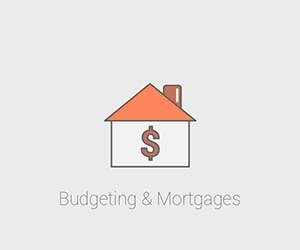 Four things make up your mortgage payments. Often known as the PITI:
Four things make up your mortgage payments. Often known as the PITI:
- Principal
- Interest
- Taxes
- Insurance
Principal
The principal is the money you actually have left on the loan. Let’s say you borrowed $100,000. Each month, a portion of your payments will go directly towards paying off that $100,000. Any money you overpay each month and any prepayment also goes straight towards the principal.
For example, If your monthly payments are calculated to $1,500, but you pay $1,600 each month, the additional $100 you paid will be applied to your principal. Just a little bit of extra money each month can make a big difference in the total amount you pay to the lender over the course of the entire loan.
Interest
The interest is the percentage the bank charges for loaning you the money. The rate is divided over each month. So, if you borrowed $100,000 at 6 percent interest:
0.06 ÷ 12 = 0.005 (this is the percentage you pay every month)
0.005 x $100,000 = $500 (this is the amount of interest you pay the first month)
So, of your monthly payments, $500 will go towards interest in the first month.
Continuing the example above, if $500 of your payment went to interest, then $1,000 would go to principal. In the second month, your interest payment would be 0.005 x $99,000 = $495. So in your next payment, $1,005 goes to principal, and therefore the next month’s interest payment is even less. And so on.
That’s why it’s a great idea to make all the prepayments you can (unless your loan has prepayment penalties). Every slice out of principal lessens the amount of interest you pay, which means a bigger slice out of principal, which means a smaller amount of interest, and so on.
For that reason, when calculating your monthly income and expenses and the terms of a loan you can afford, you shouldn’t push the limits. Instead, take out a smaller loan where you can easily afford the minimum payment and make regular prepayments.
Taxes
The city or county charges you property tax to help fund public services such as schools, the police force, and street maintenance. Depending on the city or county, your property tax rates differ, and they are recalculated every year to reflect changes to your property value.
Insurance
Unlike car insurance, which is mandatory, you can own a home without insuring it. However, if you took out a mortgage, your lender will require it (not to mention, it’s simply in your best interest). Your insurance goes to a private insurance company of your choice.
As mentioned before, some lenders require you to open a mortgage impound escrow account. Each month, a certain amount is deposited into the account to cover your taxes and homeowner’s insurance. Some lenders let you forgo the escrow account and pay your taxes and insurance on your own. If you have that option, it’s a matter of preference.
Are you good at setting money aside or do you prefer to deposit a little each month and have the bank make payments for you? Some people don’t trust their lender to make the payments for them. Others prefer the convenience of making one payment every month and letting their lender disburse the insurance and tax. It’s worth noting that impound escrow accounts don’t collect interest and can cause fluctuations in your monthly payment amount as they are recalculated for rising taxes.
| << PREVIOUS CHAPTER: Your Guide to Mortgage Paperwork | NEXT CHAPTER: If You’re Rejected for a Mortgage >> |

































